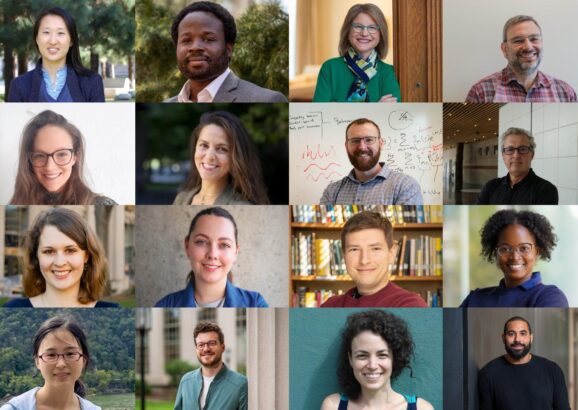Eluned Smith
Research Areas
Prof Smith’s research uses rare beauty decays, measured with the LHCb detector at CERN, to search for new fundamental particles at mass scales above the collision energy of the LHC.
The Standard Model of particle physics describes all known fundamental particles and their interactions. However, there are many aspects of our universe that the Standard Model fails to explain, pointing to the existence of physics Beyond the Standard Model (BSM).
Heavy BSM particles can mediate known Standard Model decays, altering their properties. Comparing the decay properties of these known particles to their predictions therefore provides sensitivity to BSM effects. This approach probes very heavy BSM energy scales, which would otherwise be inaccessible at the LHC.
Prof. Smith’s research uses rare decays of particles containing beauty quarks (B hadrons). These decays are referred to as electroweak penguin decays, named after their dominant Feynman diagram.
Over the last decade, significant tensions with the SM have been seen in rare electroweak penguin decays, in a phenomena referred to as the Flavour-Anomalies. However, these decays are also sensitive to poorly described QCD effects, which could mimic BSM signatures. Prof. Smith and her group specialize in using novel high-dimensional fits to data to both constrain the properties of the potential BSM signatures behind these anomalies and to isolate and constrain the magnitude of possible QCD contributions. In doing so, her work aims to resolve whether the Flavour-Anomalies are misunderstood QCD or the first sign of BSM physics at the LHC.
Her group will also contribute to R&D for the next upgrade of the LHCb detector, due to start data-taking in around 10 years time. Her group will focus on developing fast Machine Learning algorithms to reduce data throughput to more manageable levels in real time.
Biographical Sketch
Prof. Smith completed her undergraduate and PhD at Imperial College London, graduating in 2017. She did her first post-doc at RWTH Aachen before winning an Ambizione Fellowship from the Swiss National Science Foundation at the University of Zürich. Since 2021, she has led the Rare Decays physics program within the LHCb experiment.

School of Science welcomes new faculty in 2023
Sixteen professors join the departments of Biology; Chemistry; Earth, Atmospheric and Planetary Sciences; Mathematics; and Physics.
Awards & Honors
- 2022 // Emmy Noether Early Career Grant, University of Heidelberg (declined)
- 2021 // Ambizione Fellowship, University of Zürich
Key Publications
-
Measurement of CP -averaged observables in the B0→ K∗0µ+µ− decay
LHCb Collaboration Roel Aaij (NIKHEF, Amsterdam) et al.
e-Print: 2003.04831 [hep-ex]
DOI: 10.1103/PhysRevLett.125.011802
Published in: Phys.Rev.Lett. 125 (2020) 1, 011802 -
Branching fraction measurements of the rare B0s → ϕµ+µ− and
B0s → ƒ’2(1525)µ+µ− decays
LHCb Collaboration Roel Aaij (Nikhef, Amsterdam) et al.
e-Print: 2105.14007 [hep-ex]
DOI: 10.1103/PhysRevLett.127.151801 (publication)
Published in: Phys.Rev.Lett. 127 (2021) 15, 151801 -
Angular analysis of the rare decay B0s → ϕµ+µ−
LHCb Collaboration Roel Aaij (Nikhef, Amsterdam) et al.
e-Print: 2107.13428 [hep-ex]
DOI: 10.1007/JHEP11(2021)043
Published in: JHEP 11 (2021), 043 -
More publications: https://inspirehep.net/authors/1251313
